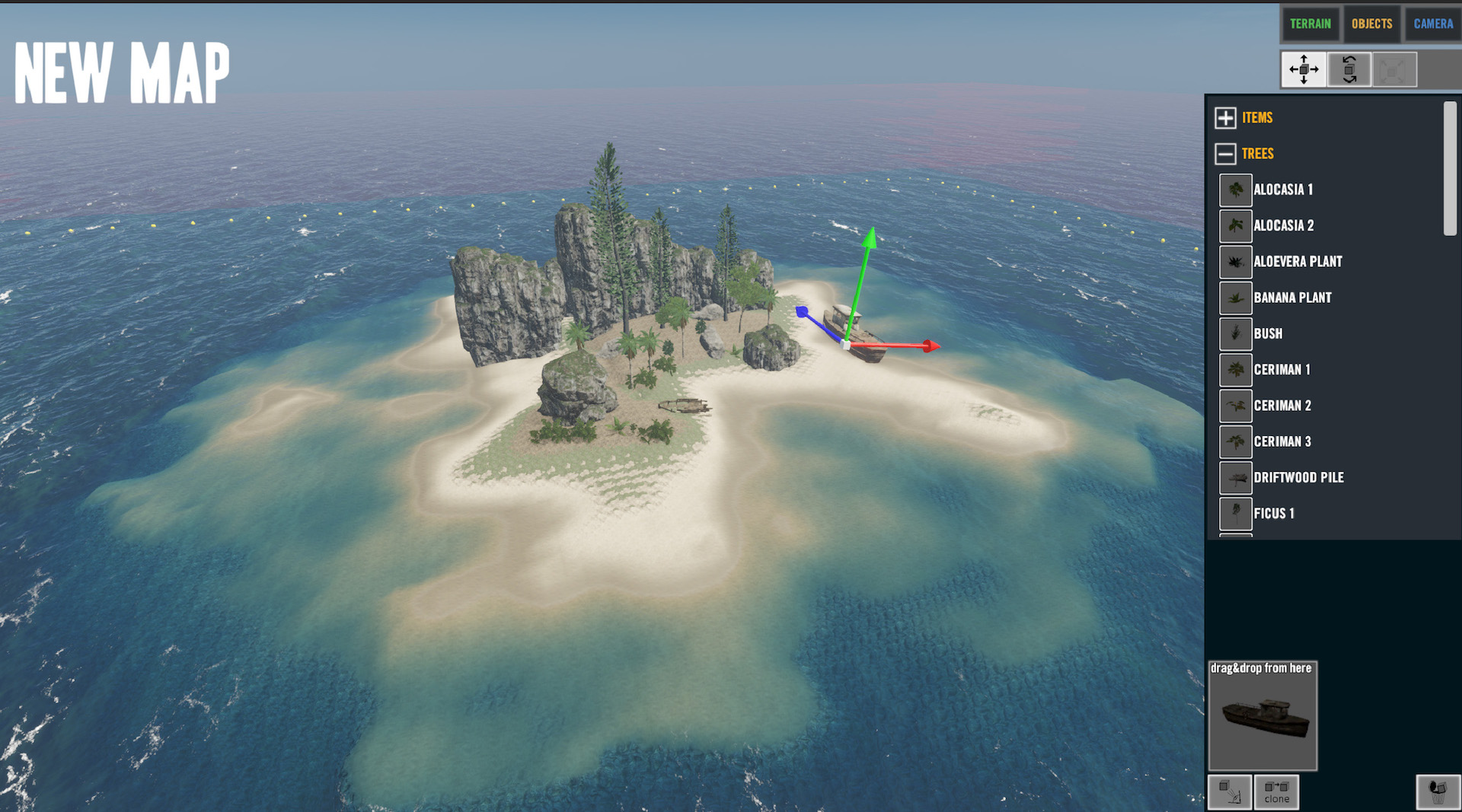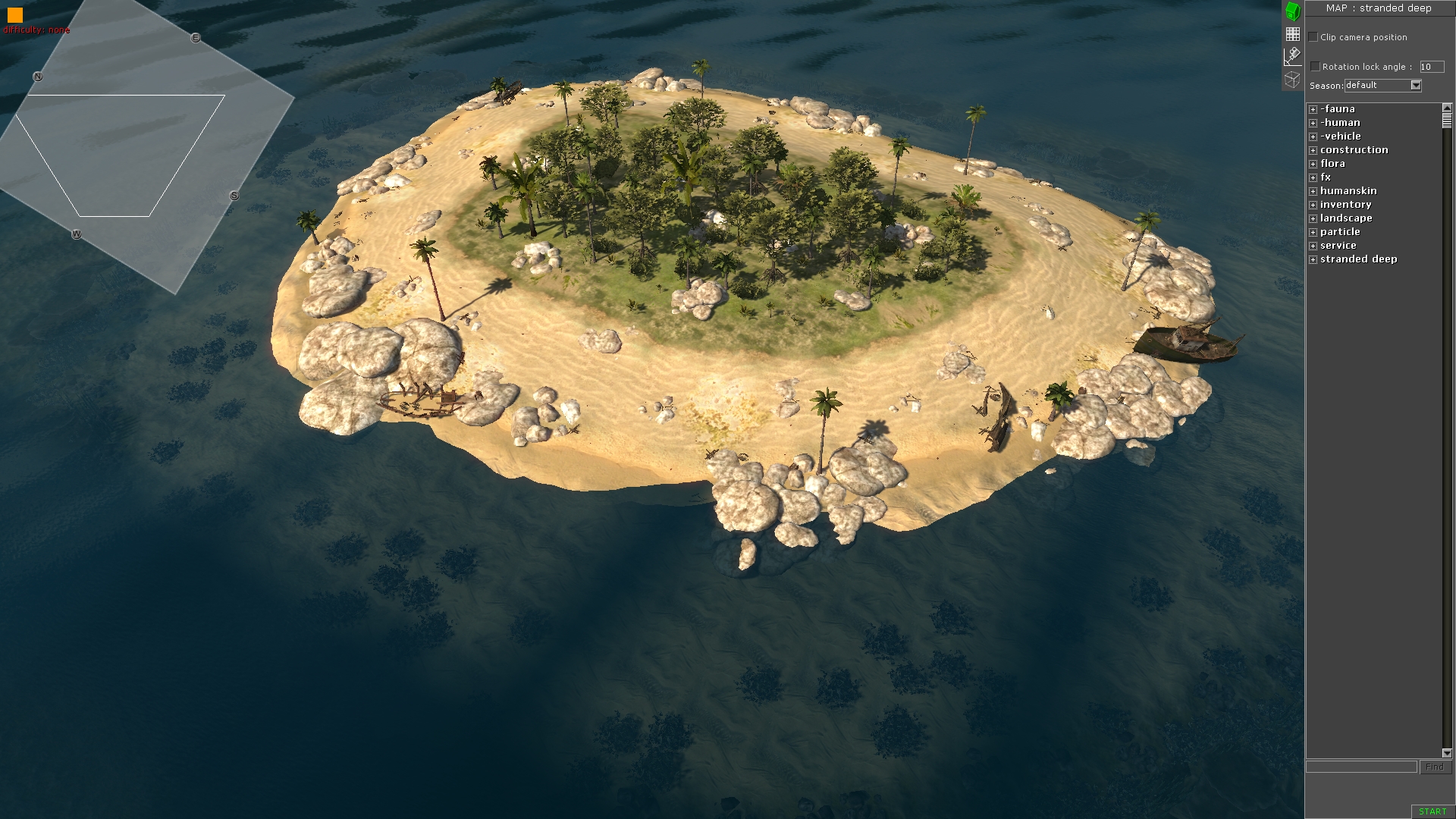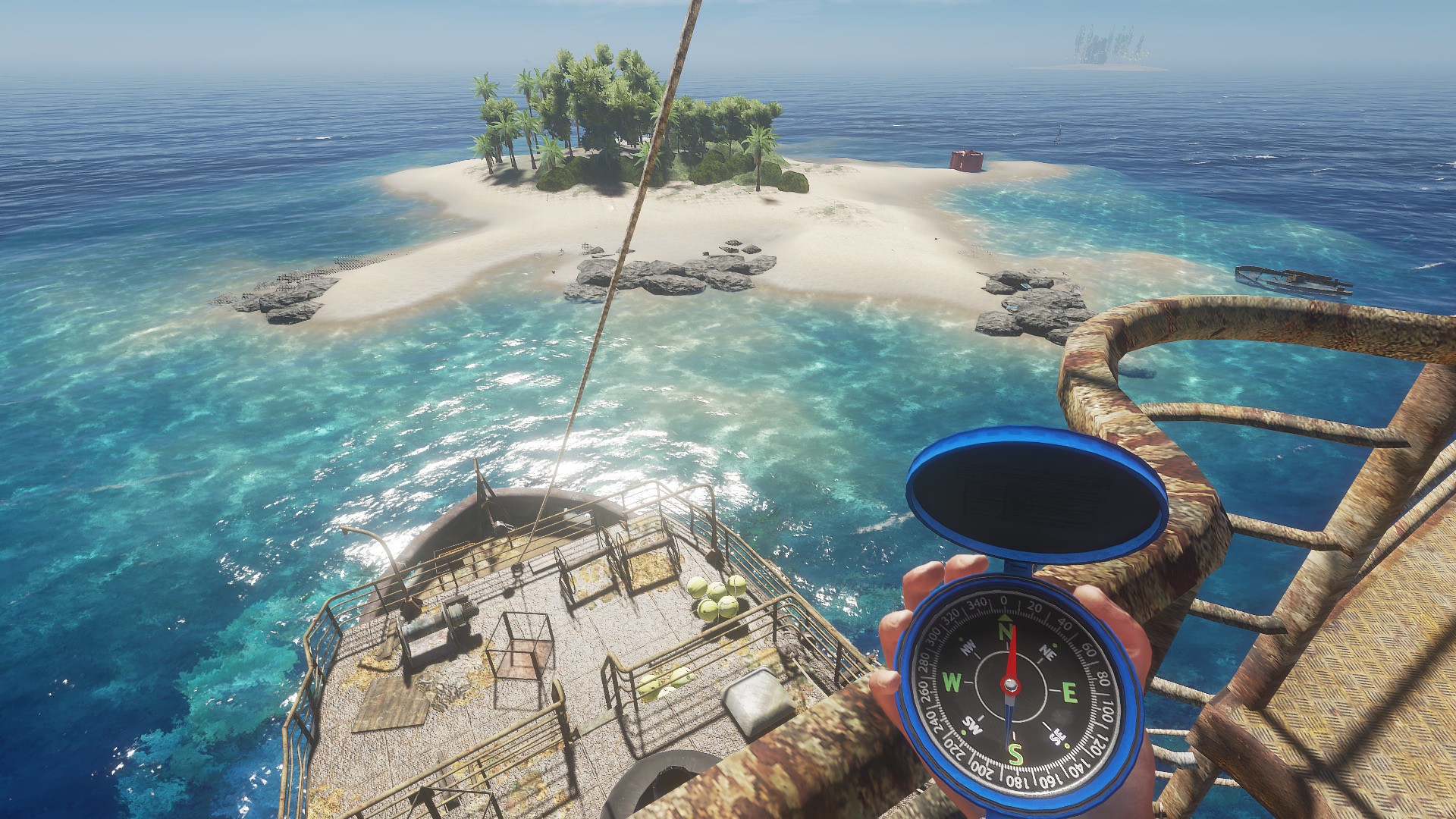Navigating the Uncharted: A Comprehensive Guide to the Stranded Deep PS4 Map
Related Articles: Navigating the Uncharted: A Comprehensive Guide to the Stranded Deep PS4 Map
Introduction
With great pleasure, we will explore the intriguing topic related to Navigating the Uncharted: A Comprehensive Guide to the Stranded Deep PS4 Map. Let’s weave interesting information and offer fresh perspectives to the readers.
Table of Content
Navigating the Uncharted: A Comprehensive Guide to the Stranded Deep PS4 Map

"Stranded Deep" on the PlayStation 4 invites players to experience the harsh realities of survival in a procedurally generated world. The game’s vast and unforgiving environment, populated by treacherous storms, hungry predators, and the ever-present threat of starvation and dehydration, makes navigating its map a crucial skill for survival. This guide aims to provide a comprehensive understanding of the Stranded Deep PS4 map, offering insights into its structure, features, and how to best utilize its intricacies to your advantage.
Understanding the Map’s Structure
The Stranded Deep PS4 map is a sprawling, open-world environment composed of multiple interconnected islands, each with its own unique biomes and resources. These islands are scattered across a vast expanse of ocean, making travel between them a significant challenge. The map is not static; each new game generates a unique arrangement of islands, ensuring a fresh and unpredictable experience for players.
Island Biomes: A Diversity of Challenges and Rewards
The islands in Stranded Deep are categorized into distinct biomes, each offering specific challenges and rewards. These biomes are not randomly distributed, but rather follow certain patterns, making them predictable once understood.
- Beach: The most common biome, offering easy access to resources like coconuts, palm leaves, and driftwood. This biome is ideal for starting your survival journey and establishing a base camp.
- Forest: A lush biome teeming with valuable resources like wood, vines, and fruits. Be wary of the dense foliage, as it can obscure predators like boars and snakes.
- Jungle: A humid and challenging biome with dense vegetation, abundant fruit trees, and potentially dangerous animals like jaguars. The jungle is rich in resources but requires careful navigation.
- Swamp: A treacherous biome characterized by murky waters, dense vegetation, and a high risk of encountering crocodiles. The swamp offers unique resources like reeds and water hyacinth, but venturing into it should be done with caution.
- Mountain: A rugged biome featuring high peaks, rocky terrain, and potentially snow-covered areas. Mountains offer valuable resources like stone and metal ore, but navigating them can be dangerous due to steep slopes and potential falls.
- Coral Reef: A vibrant underwater biome teeming with marine life. Coral reefs offer valuable resources like fish, coral, and shells, but they are also home to dangerous predators like sharks.
- Deep Ocean: The deepest part of the map, characterized by darkness and pressure. This biome offers unique resources like deep-sea fish and rare materials, but exploring it requires specialized equipment and careful planning.
Navigating the Map: Tools and Techniques
Successfully navigating the Stranded Deep PS4 map requires a combination of tools and techniques. Here are some essential strategies:
- Crafting a Raft: One of the first priorities should be crafting a raft to enable travel between islands. Rafts provide a safe and stable platform for navigating the open ocean, allowing you to explore further and gather resources from different biomes.
- Utilizing the Compass: The compass is an invaluable tool for navigating the map. It points towards north, allowing you to track your position and maintain a sense of direction.
- Reading the Environment: Pay close attention to the surrounding environment. The presence of certain plants, animals, and geological features can provide clues about the location of specific resources or potential dangers.
- Building Landmarks: Constructing landmarks like tall structures or fires can help you orient yourself and mark specific locations.
- Creating a Map: As you explore, create a map of the islands you visit, marking their locations and resources. This map will help you navigate the world more effectively and avoid revisiting the same areas unnecessarily.
Understanding the Importance of the Map
The Stranded Deep PS4 map is not merely a backdrop for survival; it is a crucial element of the gameplay experience. Its intricate design, diverse biomes, and unpredictable nature create a sense of exploration and discovery, constantly challenging players to adapt and overcome new obstacles. The map’s vastness and the potential dangers it holds foster a sense of vulnerability and reward players for their resourcefulness and strategic planning.
FAQs: A Deeper Dive into the Map
Q: Are the islands in Stranded Deep PS4 randomly generated?
A: While the arrangement of islands is procedurally generated, the types of biomes and their associated resources are not entirely random. Certain biomes tend to cluster together, offering a degree of predictability once you understand the game’s mechanics.
Q: How do I find specific resources on the map?
A: Resources are not evenly distributed across the map. Certain biomes are known to contain specific resources. For example, coconuts are abundant on beaches, while wood is more common in forests. Utilize your knowledge of the different biomes to locate the resources you need.
Q: Is there a way to track my progress on the map?
A: The game does not offer a built-in map tracking system. However, you can create your own map by marking down important locations and resources as you explore.
Q: How do I find the best location to build a base?
A: Choose a location that offers a balance of safety and resource availability. A beach near a forest is an ideal starting point, providing access to basic resources and a natural barrier against predators.
Tips for Mastering the Map
- Explore early and often: The more you explore, the better you will understand the map’s layout and resource distribution.
- Learn to recognize landmarks: Familiarize yourself with the unique features of each biome, allowing you to identify them from a distance.
- Mark your discoveries: Use markers or create a map to record the locations of valuable resources, potential dangers, and interesting landmarks.
- Plan your expeditions: Before venturing out, consider your destination, the resources you need, and the potential risks involved.
- Don’t be afraid to experiment: The map is your playground. Try different routes, explore new areas, and discover hidden secrets.
Conclusion: Embracing the Challenges of the Unknown
The Stranded Deep PS4 map is a testament to the game’s commitment to providing a challenging and rewarding survival experience. Its intricate design, diverse biomes, and unpredictable nature encourage players to think strategically, adapt to changing circumstances, and explore the unknown. By understanding the map’s structure, mastering its navigation techniques, and embracing the challenges it presents, players can unlock the full potential of this immersive and unforgettable survival game.







Closure
Thus, we hope this article has provided valuable insights into Navigating the Uncharted: A Comprehensive Guide to the Stranded Deep PS4 Map. We hope you find this article informative and beneficial. See you in our next article!
